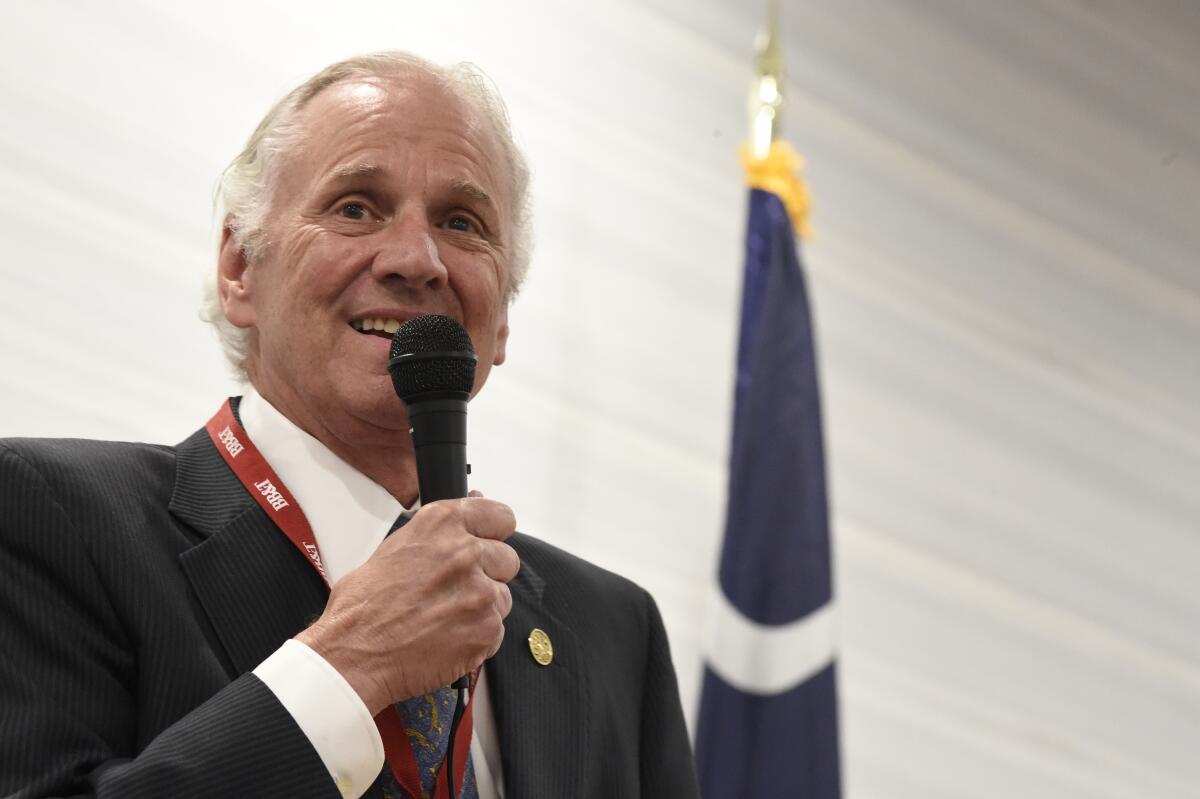Supreme Court says states may bar women on Medicaid from using Planned Parenthood clinics

- Share via
- The court’s conservative majority reversed the longstanding rule that said Medicaid patients may obtain medical care from any qualified provider.
- In a 6-3 vote, the justices ruled the Medicaid Act does not give patients an “individual right” to the provider of their choice.
WASHINGTON — The Supreme Court ruled Thursday that states may exclude Planned Parenthood clinics from providing medical screenings and other healthcare for women on Medicaid.
The court’s conservative majority cast aside the longstanding rule that said Medicaid patients may obtain medical care from any qualified provider.
In a 6-3 vote, the justices ruled the Medicaid Act does not give patients an “individual right” to the provider of their choice.
The dispute turned on abortion, even though federal funds cannot be used to perform the procedure.
Medicaid is funded by the federal government and the states. For decades, conservative states have sought to “defund” Planned Parenthood and argued they did not want to subsidize a leading provider of abortions.
But until recently, the federal government and most courts had held that Medicaid patients may go to any qualified provider for healthcare.
The legal battle hinged on whether the Medicaid Act gave a patients a right that could be protected in court. The answer was no, said Justice Neil M. Gorsuch speaking for the majority.
The court’s three liberals, all women, dissented.
Justice Ketanji Brown Jackson said the decision “will deprive Medicaid recipients in South Carolina of their only meaningful way of enforcing a right that Congress has expressly granted to them. And, more concretely, it will strip those South Carolinians — and countless other Medicaid recipients around the country — of a deeply personal freedom: the ability to decide who treats us at our most vulnerable.”
Justices Sonia Sotomayor and Elena Kagan agreed.
In theory, a Medicaid patient could file a complaint with the Trump administration and tell the Department of Health and Human Services that the state is failing to comply fully with the Medicaid Act.
Planned Parenthood clinics provide cancer screenings, birth control, medical screenings, pregnancy testing, contraception and other healthcare services.
Congress pays most of the state’s costs for Medicaid, and the law says “any individual eligible for medical assistance” may receive care from any provider who is “qualified to perform the service.”
Last year, the 4th Circuit Court of Appeals rejected South Carolina’s contention that it could exclude Planned Parenthood from the Medicaid program.
“We reaffirm that a Medicaid beneficiary may ... vindicate her right under the Medicaid Act to freely choose among qualified healthcare providers, of which Planned Parenthood is one,” wrote Judge J. Harvie Wilkinson, a prominent conservative and a Reagan appointee.
But the court agreed to hear the state’s appeal in Medina vs. Planned Parenthood.
Lupe Rodríguez, executive director of National Latina Institute for Reproductive Justice, called Thursday’s decision “an attack on our healthcare and our freedom to make our own decisions about our bodies and lives. By allowing states to block Medicaid patients from getting care at Planned Parenthood health centers, the Court has chosen politics over people and cruelty over compassion.”
Sen. Dick Durbin (D-Ill.) said it was “yet another shameful ruling that inserts the government directly between a patient and their doctor — just like Dobbs three years ago and Skrmetti last week. Intimate, personal decisions about health care shouldn’t require sign off from extremist politicians.”

He was referring to the 2022 decision that overturned Roe vs. Wade and last week’s ruling upholding state laws that ban hormone treatment for transgender teens.
Carol Tobias, president of the National Right to Life Committee, praised the decision as a landmark.
“We are grateful the Supreme Court has recognized the right of states to direct taxpayer dollars toward life-affirming healthcare providers,” she said. “No one should be forced to subsidize the abortion industry with their tax dollars.”
After the Supreme Court overturned the constitutional right to abortion, South Carolina made most abortions a crime. But the state continued its legal fight to prevent Medicaid patients from receiving care at Planned Parenthood’s clinics in Charleston and Columbia.
Gov. Henry McMaster, who issued the ban on Planned Parenthood in 2018, said he did so to protect “his state’s sovereign interests.”
Critics of the move said the state has a severe shortage of doctors and medical personnel who treat low-income patients on Medicaid.
More to Read
Get the L.A. Times Politics newsletter
Deeply reported insights into legislation, politics and policy from Sacramento, Washington and beyond. In your inbox twice per week.
You may occasionally receive promotional content from the Los Angeles Times.











